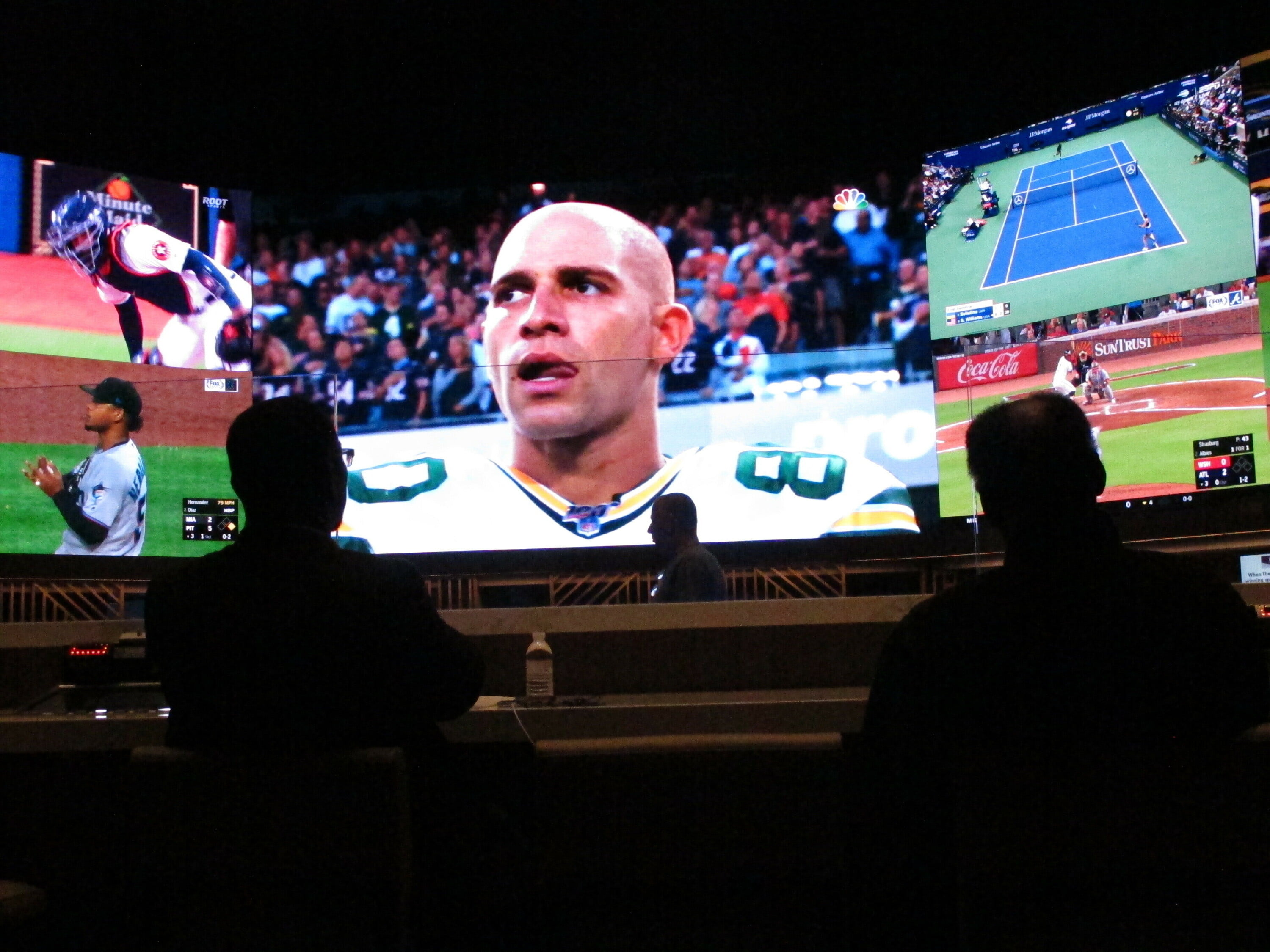Commentary
It’s illegal in California to bet on sports events. That illegality extends both to bets in person and bets on the internet.
Two well-financed competitors are squaring off to convince California voters that their specific proposal to allow sports gambling is best for Californians. Propositions 26 and 27 are on the Nov. 8 California ballot in what’s shaping up to be the election prize fight of the century.
The Los Angeles Times estimates that the advertising campaigns by the two combatants may equal $500 billion. Only one proposition can become law.
What is there to fight over? Money.
New York’s gross revenues from its sports betting handle have averaged over $1 billion per month from April through July of this year with football season waiting in the wings. Assuming at least one of the propositions is approved, California’s November ballot will determine who will control or have the opportunity to control potentially billions of dollars of California sports betting revenues.
Illegal Sports Gambling
Illegal internet sports gambling in California is ubiquitous. While that sports gambling is illegal, it’s readily available on the internet. Illegal sports gambling generates no state or federal income taxes or any other stream of revenue to California governmental entities.
Regardless of whether Proposition 26 or 27 is passed by California voters, legal sports gambling will only take place legally if legal sports gambling is competitive with illegal sports gambling. If legal sports gambling is inconvenient, it’s likely that most Californians who bet on sports will continue to rely on illegal offshore enterprises for sports gambling in California.
Prospective California Sports Gambling Opportunities
Proposition 26 proposes to allow sports gambling only if bets are made in-person at Native American tribal casinos or the four California racetracks. Internet sports gambling would continue to be banned under Proposition 26. It would also permit craps and roulette at Native American tribal casinos. These forms of gambling are currently illegal in California.
Most of coastal California including Los Angeles, most of Orange County, and San Francisco would not have convenient locations to place sports wagers. Drive times of 30 minutes or more to place bets would be the norm.
Additionally, there’s no guarantee that the costs of operating in-person sports gambling in competition with illegal sports gambling would be profitable and therefore no guarantee that each or any of the racetracks would determine to offer sports betting.
The inconvenience of needing to drive to a sports betting site as opposed to illegally using the internet would favor the sports bettor to continue to select illegal sports betting on the internet versus in-person betting under Proposition 26.
Proposition 27 legalizes sports betting on the internet. Under Proposition 27, there should be little or no reason for a sports bettor to choose illegal internet sports gambling versus legal sports gambling. Along with the sponsors of Proposition 27, Native American tribes would be permitted to offer sports betting on the internet.
For the sports betting consumer, Proposition 27 is a better opportunity.
Gambling Tax Revenues
Proposition 26 doesn’t provide for Native American tribes to pay taxes beyond the cost of regulation on sports gambling at Native American tribes’ casinos. Proposition 26 provides neither new taxes on their existing casino gambling nor any new taxes from the addition of craps and roulette.
Proposition 26 provides that racetrack operators would be subject to a 10 percent tax on net sports betting less prize payments.
Proposition 27 provides that internet sports gambling would be subject to a 10 percent tax on net sports betting less prize money, less promotional betting costs, and less federal gambling taxes.
Income Tax Revenues
Native American tribes pay no federal or state income taxes on their profits from operating their casinos. Proposition 26 would yield no additional federal or state income taxes from sports betting at Native American casinos.
Racetracks in California pay state and federal income taxes. Under Proposition 26, profits from sports betting at California racetracks would be subject to income taxes for both federal and state purposes.
Proposition 27 would result in both federal and California income tax revenues from internet gambling. Assuming the entities are profitable, the federal tax will be 21 percent of profits and the California tax will be 8.84 percent of profits.
Amount of and Allocation of Gambling Revenues to the State
Proposition 26 is estimated by California’s Legislative Analyst’s Office to potentially result in state revenues of as much as tens of millions of dollars of revenues annually (
pdf). These revenues would be dependent upon sports gamblers being willing to drive to California’s four racetracks to make sports wagers.
Proposition 27 is estimated by California’s Legislative Analyst’s Office to potentially result in state revenues of as much as hundreds of millions of dollars annually (pdf).
Proposition 26 allocates the government revenues as follows: 70 percent to California’s general fund, 15 percent to gambling addiction and mental health programs and grants, and 15 percent to sports and gambling enforcement costs.
Proposition 27 allocates 85 percent to address California homelessness and gambling addiction programs. It further allocates 15 percent to Native American tribes not involved in online sports betting.
The tax revenues from Proposition 27 are estimated to be many times the tax revenues estimated for Proposition 26.
Other Issues
Both Proposition 26 and 27 would require that sports betting only be available to individuals 21 and above.
Proposition 26 would preclude betting on California college sports. Both illegal gambling and other states would continue to offer gambling on California college sports events. It appears that sports bettors could bet on tournaments that include California colleges, but would be precluded from betting on California teams. This could get very complicated.
Proposition 26 proposes opportunities to file lawsuits against non-Native American tribal-owned card clubs that could ultimately result in the closure of some card clubs.
The sports gambler would be far better served by Proposition 27. Sports gambling would be available via the internet without the need to drive from point A to point B to make a wager.
Because Proposition 26 requires in-person sports betting, it’s likely that a large percentage of sports gamblers would continue to bet illegally on the internet.
Proposition 27 would very likely reduce or perhaps eliminate illegal sports gambling on the internet.
For the gambler who desires to play craps or roulette, this gambling activity would only be available in California to the gambler through Proposition 26.
Because Native American tribes by treaty don’t pay taxes to either the federal government or California, the only new source of taxation from Proposition 26 would be sports gambling at the racetracks.
California’s Legislative Office estimates that Proposition 27 would result in hundreds of millions of dollars annually to fight homelessness while Proposition 26 would add tens of millions to the general fund.
Las Vegas hasn’t posted odds on which contender will win the California sports betting battle; it’s illegal under federal law to gamble on elections in the United States.
Note: the writer contacted the campaigns for both Proposition 26 and 27 for comment. There was no response from the Proposition 26 campaign.







